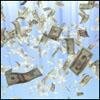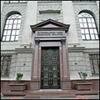Другие материалы рубрики «English»
-
 Opposition activists stage Chernobyl anniversary march in Minsk
Opposition activists stage Chernobyl anniversary march in Minsk
Opposition activists staged a traditional demonstration in Minsk on Sunday to mark the 29th anniversary of the Chernobyl nuclear accident... -
 Bruce Bucknell. Remember Crimea
Bruce Bucknell. Remember Crimea
A year ago, the Kremlin helped stage an illegal and illegitimate “referendum” in Crimea that culminated in Russia annexing Crimea from Ukraine...
- Zyanon Paznyak calls for preventing pro-Putin bikers from riding through Belarus on controversial road trip
- Biathlon Youth and Junior World Championships draw to close near Minsk
- US State Department’s envoy to visit Belarus this week
- Lukashenka meets with EEAS deputy secretary general
- EU foreign ministers, Brussels officials expected to visit Minsk soon
- Revelers in Minsk celebrate end of Butter Week
- Leaders of France, Germany, Russia, Ukraine arrive in Minsk for summit on Ukraine crisis
- United Kingdom’s Visa Application Center in Minsk moves into permanent office
- Minsk residents paying tribute to victims of Charlie Hebdo massacre in Paris
- Minsk adorned by New Year illumination
English
There should be no sharp change in rubel's exchange rate next year, says National Bank head
One should not expect a sharp change in the exchange rate of the Belarusian rubel next year despite the fact that the National Bank of Belarus (NBB) does not set exchange rate targets for 2013, NBB head Nadzeya Yermakova said on Wednesday during a question-and-answer session hosted by the government's news agency BelTA.
The internal and external balance of the economy, a priority for the government and the NBB, are the basis of the stability of the exchange market and the exchange rate, Ms. Yermakova said.
The exchange rate is set on the basis of foreign currency demand and supply in the domestic market, she said. That is why everybody should get used to certain fluctuations in either direction and see them as part and parcel of market economy, she said.
The National Bank plans to gradually reduce its presence in the exchange market in 2013, Ms. Yermakova said.
She described the current trends in the market as positive. Economic entities sold $1.5 billion more foreign currency in the first 11 months of 2012 than in the same period of the previous year, with their sales exceeding purchases by nearly $210 million in October and November alone, Ms. Yermakova said.
The population's demand for foreign cash decreased by more than 20 percent in November, not least because of the National Bank's tight refinance rate policy, which made Belarusian rubel deposits more profitable and foreign currency deposits less attractive, she said.
Time deposits increased by 51.6 percent between January 1 and December 15 to total 64.2 trillion rubels, with Belarusian rubel deposits growing by 57.9 percent to total 14.8 trillion rubels and foreign currency deposits by 45.6 percent to total $5.8 billion, Ms. Yermakova said.
The situation in the market of loans and deposits next year will depend on the inflation rate, the base refinance rate and interest rates, she said.
There have recently been considerable fluctuations in interest rates on interbank loans, Ms. Yermakova noted, adding that the National Bank would continue its work to narrow the gap between the interest rates and its base refinance rate.
The Belarusian rubel lost 17 percent of its value against the US dollar as a result of a currency devaluation in January 2009. The rubel was devalued by 36 percent against the dollar in May 2011 and by 34.3 percent in October 2011. Both Alyaksandr Lukashenka and Pyotr Prakapovich, then the head of the National Bank, and the National Bank press office had repeatedly dismissed reports of forthcoming devaluations as completely unfounded.
The 2012 Monetary Policy Guidelines projected the exchange rate of the Belarusian rubel to be 9,150 against the dollar at the end of the year. //BelaPAN




В настоящее время комментариев к этому материалу нет.
Вы можете стать первым, разместив свой комментарий в форме слева